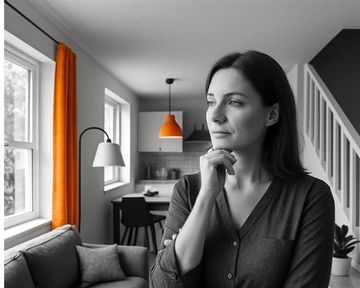How to determine a realistic rental budget
Finding the perfect rental property can be an exciting journey, but it’s also one that requires careful financial planning. One of the most common mistakes tenants make is determining their rental budget based solely on the maximum amount they believe they can afford. While this might land you a dream home in the short term, it can quickly turn into a financial nightmare if you’re left struggling to cover your rent and other monthly expenses.
Instead of focusing on your upper financial limit, a more sustainable approach is to work out how much you comfortably want to spend on rent each month — while still maintaining your lifestyle, savings goals, and financial health. Here’s a comprehensive guide to help you determine a rental budget that supports both your housing needs and overall well-being.
1. Start with a clear understanding of your finances
The first step in setting a realistic rental budget is to understand exactly how much money you have coming in and going out each month. This includes your total household income, whether you are renting alone or with a partner, and all your fixed and variable expenses.
Start by listing your monthly take-home income after taxes. Then deduct essential expenses such as groceries, transport, medical aid, school fees, insurance, debt repayments, and any other recurring financial obligations. Be honest with yourself about your spending habits and include discretionary expenses like entertainment, dining out, and shopping.
Once you’ve tallied your expenses, the remaining amount gives you a baseline for what you could reasonably allocate towards rent — without putting your financial health at risk.
2. Follow the 30% rule as a general guideline
A commonly used rule of thumb is to spend no more than 30% of your gross monthly income on rent. For example, if you earn R30,000 a month before deductions, your rent should ideally be R9,000 or less. This rule helps ensure you have enough money left over for other living expenses, savings, and emergencies.
However, this guideline isn’t one-size-fits-all. If you have little to no debt and live frugally, you might comfortably afford to spend a bit more. On the other hand, if you’re supporting dependents or paying off significant debt, you may need to spend less than 30% on rent.
3. Understand the income-to-rent ratio
Landlords and property managers often use an income-to-rent ratio when assessing rental applications. Typically, they want to see that a tenant earns at least 2 to 3 times the monthly rent. This provides them with assurance that the tenant will be able to meet rental obligations consistently.
For example, if a property costs R10,000 per month, you may need to prove an income of R20,000 to R30,000 per month to qualify. While this ratio is a helpful benchmark, it’s also a useful self-check to determine if you're looking at properties within your realistic price range.
4. Factor in upfront and ongoing costs
Rent isn’t the only housing cost to consider. When budgeting, be sure to include:
- Deposit: Most landlords require a deposit equivalent to one or two months’ rent upfront. This amount should be saved before you begin house-hunting.
- Utilities: Water, electricity, refuse removal, and sewage may or may not be included in your rent. Ask in advance.
- Internet and Security: These monthly costs can add several hundred rands to your budget.
- Parking: If parking is not included, you may need to rent a bay.
- Admin and Credit Check Fees: Some agencies charge fees for processing your rental application.
- Renters Insurance: Optional, but wise — this covers the contents of your home against theft or damage.
5. Don’t ignore your lifestyle choices
Many people overlook the cost of their personal lifestyle choices when determining affordability. Even if you technically can afford a property on paper, the reality might look very different once you move in.
Consider how your rental decision will affect your day-to-day life. If your new rent leaves no room for things like social outings, hobbies, gym memberships, or occasional travel, it could lead to frustration and resentment. Renting a cheaper property might give you more breathing room and allow for a more balanced and enjoyable lifestyle.
6. Prepare for the unexpected
Life is unpredictable, and financial setbacks can happen. Having a buffer fund of at least one month’s rent saved can provide peace of mind in case of emergencies like medical bills, job loss, or a car breakdown. It’s also wise to budget for annual rent increases, which can range from 5% to 10% depending on market conditions and lease agreements.
7. Consider a professional budgeting session
If you’re unsure of what you can afford or struggle with money management, consider consulting a financial planner. They can help you evaluate your finances, prioritise your goals, and build a monthly budget that aligns with your rental search.
Once you know your true budget, a reputable estate agent can show you what’s available in your price range. This two-pronged approach ensures you don’t fall in love with a property that is ultimately outside your financial comfort zone.
8. Choose long-term stability over short-term appeal
While a high-end apartment with stunning views or modern finishes may seem worth the splurge, it’s important to focus on long-term affordability and financial stability. A slightly smaller or less glamorous home that fits your budget might provide more peace of mind and greater flexibility to enjoy other aspects of your life.
Remember, renting should enhance your quality of life not drain your resources.
Determining a rental budget isn’t just about numbers; it’s about aligning your living situation with your broader financial goals. With careful planning and a clear understanding of your expenses and lifestyle priorities, you can find a home that supports both your housing needs and your financial future.

